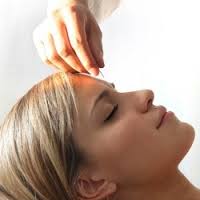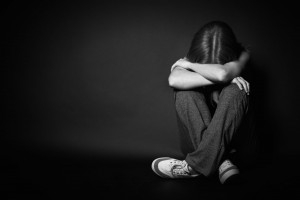Recent research undertaken at Guangzhou University of Chinese Medicine (Second Afflilliated Hospital) shows acupuncture and moxibustion has both short- and long-term benefits from those suffering depression. The study confirmed that manual stimulation of acupuncture needles at specific points increases the positive treatment outcomes for patients. Manual stimulation of acupuncture needles is used to elicit a deqi sensation which is often described as a dull pressure, pulling, electrical or itching sensation. Deqi can also be observed by the acupuncturist either by the feel of the needle or by observing the insertion site. The Bao You Fu (Song to Elucidate Mysteries) is a traditional Chinese medicine (TCM) text that describes deqi as “the arrival of qi like a fish biting on a fishing line”. Another TCM text the Ling Shu (Miraculous Pivot) states, “the arrival of qi [deqi] is of great importance in acupuncture. It indicates that the treatment is effective”. And also in the Bao You Fu, “An immediate deqi sensation means the treatment is instant and effective.”
The university’s study showed true acupuncture has significant effects for patients by comparing it to sham acupuncture which showed no significant positive patient outcomes. There are many forms of sham (false) acupuncture commonly used in research as the use of a sham control group significantly increases the validity of the study and elimates the possibility of a placebo effect. The 163 participants in this study had been diagnosed with mild to moderate depression using the Hamilton Depression Scale and were separated into three groups. Group 1 received acupuncture with the elicitation of the deqi sensation along with moxibustion; Group 2 received the same as Group 1 but without the deqi; and Group 3 received the same as Group 2 without using true acupuncture points (a form of sham acupuncture).
Group 1 received acupuncture with deqi at points LI4 (Hegu), LV3 (Tai Chong), collectively known as four gates, along with GV20 (Baihui) and Yintang. Researchers selected these sites based on a common TCM diagnosis of qi stagnation and shen disorder for depression stating, “soothing the Liver to calm exaggerated emotions is the key”. Sites were disinfected and needled appropriate to each site with needles manipulated using rotating, lifting and thrusting to elicit the deqi response. Moxibusion was also used on BL17 (Geshu) and BL19 (Danshu) to gain a warming sensation along with intradermal needling to BL15 (Xinshu) and BL18 (Ganshu). Group 2 received treatment to the same points but with no deqi elicited and moxa used but without the warming effect. Group 3 received the same treatment as Group 2 but using sham acupuncture points. Total needle retention times for all three groups was 30 minutes.
Treatments occured twice a week for 12 weeks for each group and data was collected using the Hamilton Depression Scale as the outcome measure at the completion of the 12 weeks course, again 1 month post-treatment and a finally at 3 months post-treatment. The results were impressive, showing an effective rate of 93.62% for Group 1 at completion of the trial. Group 2 showed an 89.58% effective rate and Group 3 showed 62.5% but this dropped sharply over the long-term whereas the effective rate of Group 1 was maintained. There may have been some some presence of the placebo effect though this was not lasting.
A similar research study was carried out by Luo et al from Guangzhou Panyu District Traditional Chinese Medicine Hospital on depression and associated neck pain. A total of 70 patients were separated into two groups each receiving acupuncture at different points. Group 1 received acupuncture with elicited deqi at:
- GV20 (Baihui)
- Yintang
- LI4 (Hegu)
- LV3 (Tai Chong)
- HT7 (Shenmen)
- SI4 (Wangu)

- BL15 (Xinshu)
- BL18 (Ganshu)
- Plus moxibustion on BL17 (Geshu) and BL19 (Ganshu)
Group 2 received acupuncture with elicited deqi at:
- BL10 (Tianzhu)
- GB20 (Fengchi)
- TB5 (Waiguan)
- EX-HN15 (Bailao)
- EX-NH24 (Xinshe)
- BL11 (Dashu)
- Plus moxibustion on EX-HN15 (Bailao) and SI15 (Jianzhongshu)
Both treatments were found to be effective though Group 1 had greater patient outcomes.
These two studies combined prove acupuncture to be an effective and safe treatment for depression.
Reference: Acupuncture Depression Relief Confirmed
